
How to Keep Bugs Away While Camping and Out of Your Tent
Do you love camping but dread the inevitable bug invasions? There’s nothing quite like enjoying the great outdoors, only to be swarmed by pesky insects. Fear not! This guide will teach you how to keep bugs away while camping and out of your tent, ensuring a more enjoyable and comfortable experience. Let’s dive into the best tips and tricks for a bug-free camping adventure!
1. Choose the Right Campsite
Location Matters
When selecting a campsite, pay attention to the location. Avoid areas near standing water, such as ponds, lakes, or marshes, as these are prime breeding grounds for mosquitoes and other insects. Instead, opt for higher ground with good airflow to keep bugs at bay.
Clear the Area
Before setting up your tent, clear the area of debris, such as leaves, sticks, and tall grass. These can attract insects and provide them with hiding spots. A clean campsite is the first step to keeping bugs away.
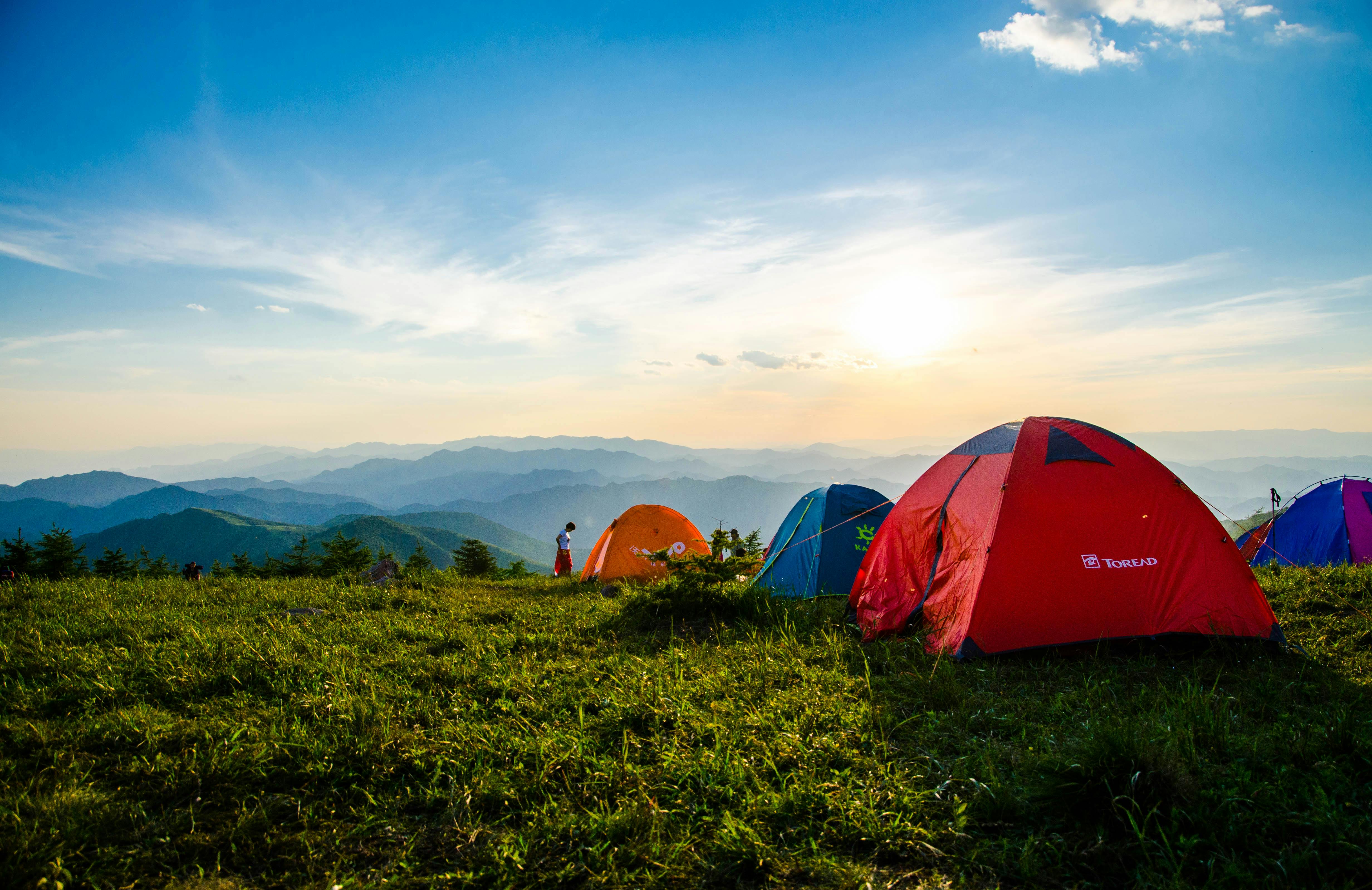
2. Invest in Quality Gear
Bug-Proof Tent
A high-quality, bug-proof tent is essential. Look for tents with fine mesh screens on windows and doors to prevent insects from entering. Ensure that all zippers close tightly and that there are no holes or tears in the fabric.
Screened Shelter
Consider bringing a screened shelter or canopy to create a bug-free zone for cooking, eating, and relaxing. These shelters provide an additional layer of protection and can make your camping experience more enjoyable.
3. Use Natural Bug Repellents
Essential Oils
Natural bug repellents, such as essential oils, can be effective in keeping insects away. Some popular options include:
- Lemon Eucalyptus Oil: Known for its ability to repel mosquitoes.
- Lavender Oil: Pleasant-smelling and effective against various insects.
- Peppermint Oil: Deters spiders and ants.
Mix these oils with a carrier oil, such as coconut or almond oil, and apply them to your skin. You can also create a spray by diluting essential oils with water and spraying it around your campsite.
Citronella Candles
Citronella candles are a classic choice for keeping bugs at bay. Place them around your campsite and near the entrance of your tent to create a bug-repelling barrier. The scent of citronella masks the scents that attract insects, helping to keep them away.

4. Dress for Success
Appropriate Clothing
Wearing the right clothing can make a significant difference in keeping bugs away. Opt for long-sleeved shirts, long pants, and closed-toe shoes to minimize exposed skin. Light-colored clothing is preferable, as dark colors can attract mosquitoes.
Insect-Repellent Clothing
Invest in clothing treated with insect repellent, such as permethrin. These garments provide an added layer of protection and can be particularly useful in bug-prone areas. You can also treat your existing clothing with permethrin spray.
5. Keep Your Tent Sealed
Proper Setup
When setting up your tent, ensure all doors and windows are closed tightly. Use the mesh screens to allow airflow while keeping bugs out. Double-check for any gaps or openings that insects could exploit.
Entry and Exit
Minimize the number of times you enter and exit your tent to reduce the chances of bugs sneaking in. When you do enter or exit, do so quickly and make sure the zipper is fully closed behind you.
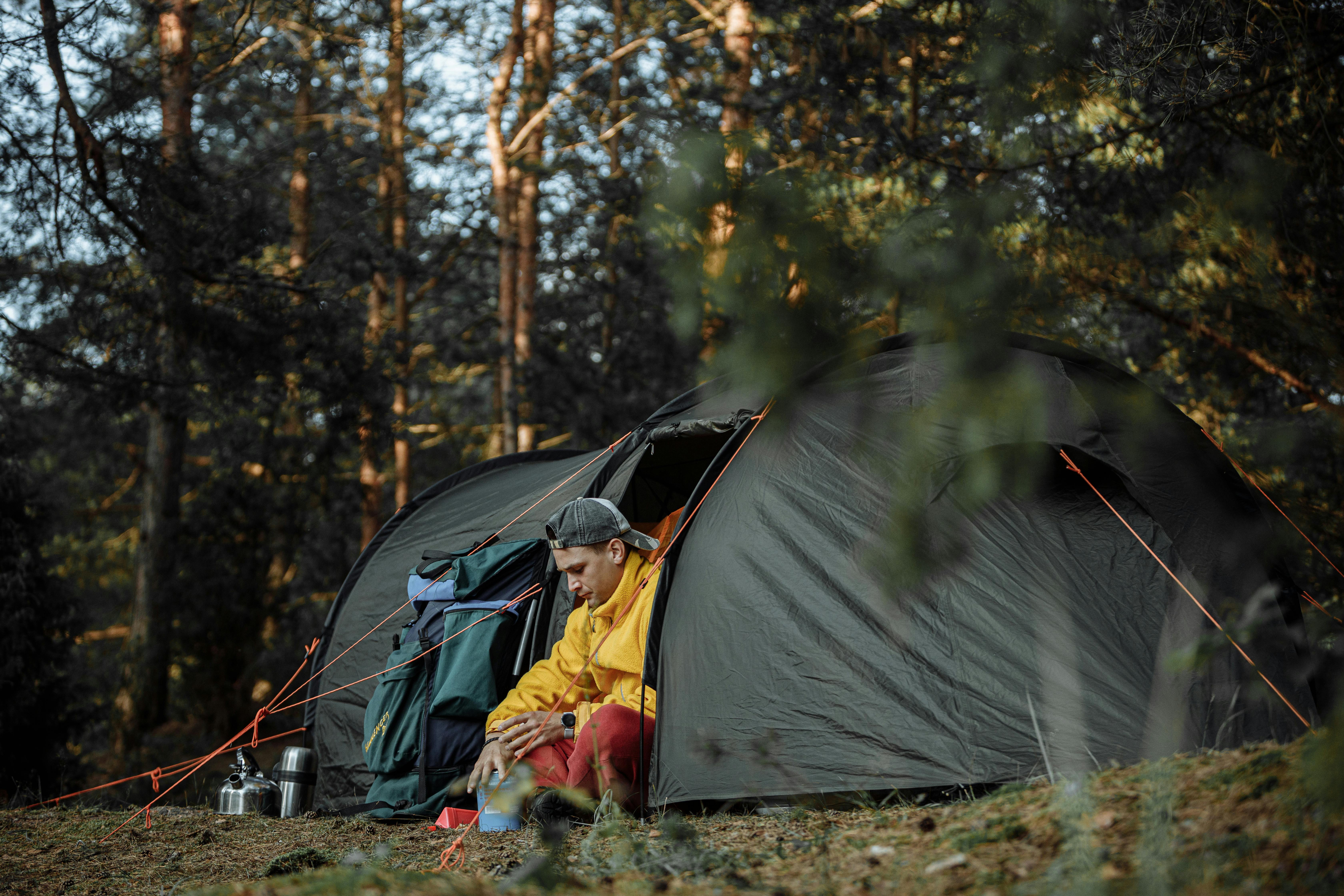
6. Use Bug Nets and Screens
Bed Nets
Consider using bed nets inside your tent, especially if you’re in an area with a high mosquito population. These nets provide an extra layer of protection while you sleep and can help ensure a bug-free night’s rest.
Window and Door Screens
Ensure that your tent’s windows and doors are equipped with fine mesh screens. These screens should be in good condition and free of holes. If your tent doesn’t have screens, consider adding them for added protection.
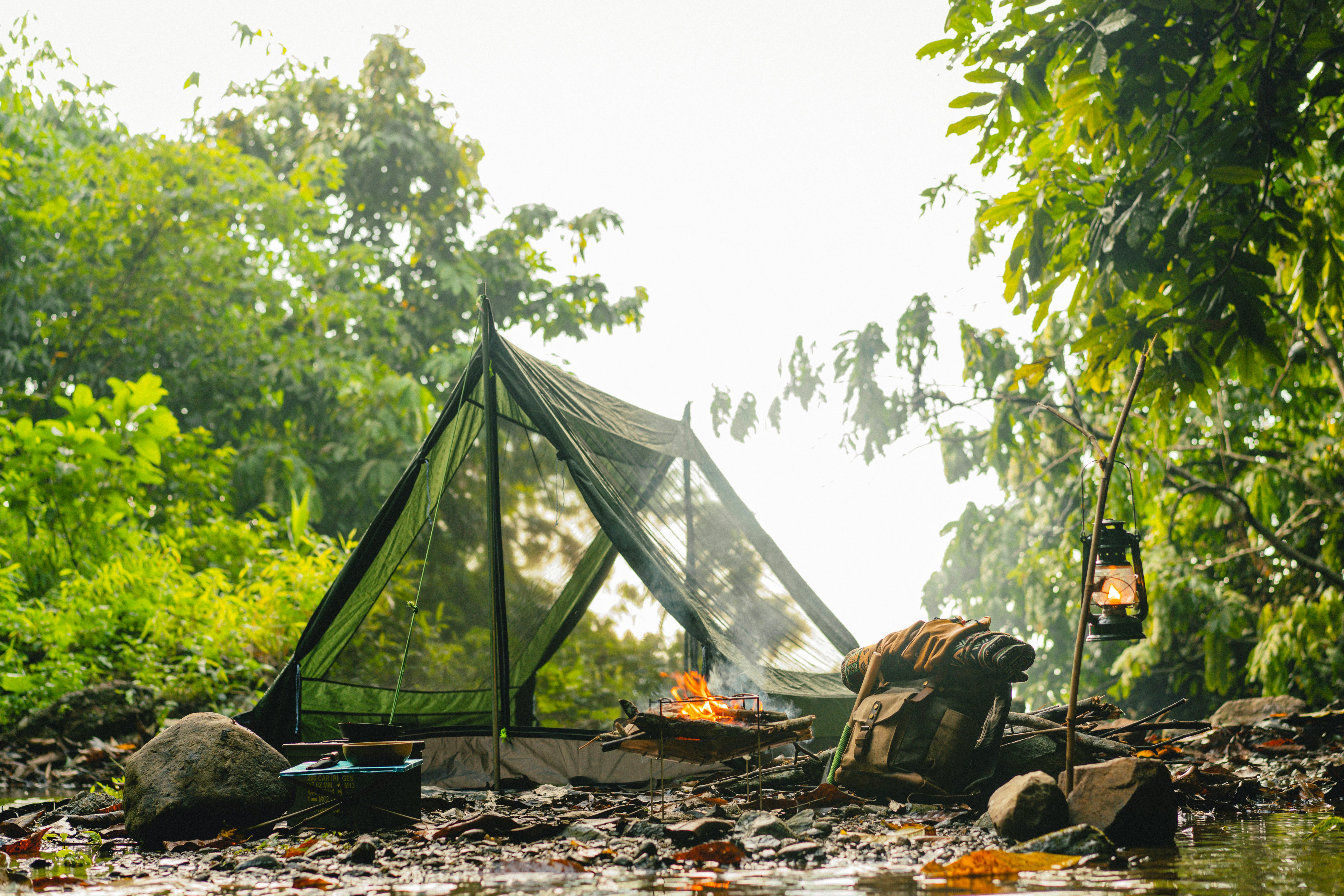
7. Keep Your Campsite Clean
Food Storage
Proper food storage is crucial for keeping bugs away. Store food in airtight containers and keep them inside your tent or vehicle. Avoid leaving food out in the open, as it can attract insects and other wildlife.
Trash Management
Dispose of trash promptly and keep it in sealed bags or containers. Clean up any food scraps or spills immediately to avoid attracting bugs. A clean campsite is less likely to be a bug magnet.

8. Utilize Bug Zappers and Traps
Bug Zappers
Bug zappers can be effective in reducing the insect population around your campsite. These devices attract bugs with light and then zap them, helping to keep the area bug-free. Place bug zappers away from your tent to draw insects away from your sleeping area.
Traps
Set up insect traps around your campsite to capture and reduce the bug population. There are various types of traps available, including those for mosquitoes, flies, and ants. Choose the appropriate traps for the insects you’re dealing with.
9. Apply Chemical Repellents
DEET
DEET is a widely used and effective insect repellent. Apply it to exposed skin and clothing to keep mosquitoes, ticks, and other bugs at bay. Follow the instructions on the product label for safe and effective use.
Picaridin
Picaridin is another effective chemical repellent. It’s less likely to irritate the skin compared to DEET and provides long-lasting protection. Apply it to skin and clothing as directed for optimal results.
10. Create a Smoke Barrier
Campfire
A campfire can help keep bugs away, as smoke acts as a natural insect repellent. Set up your campfire in a central location and let the smoke drift around your campsite. Be sure to follow fire safety guidelines and never leave the fire unattended.
Smoke Bundles
Burning herbs like sage, rosemary, or thyme can enhance the bug-repelling effects of your campfire. Create small bundles of these herbs and place them in the fire to release their bug-repelling properties.

11. Maintain Personal Hygiene
Regular Showers
Regular showers and cleanliness can reduce your attractiveness to bugs. Sweat and body odors can attract insects, so staying clean can help minimize bug bites. Use unscented or lightly scented personal care products to avoid attracting bugs.
Scented Products
Avoid using heavily scented lotions, perfumes, or deodorants, as these can attract insects. Opt for unscented or lightly scented products instead.
12. Use Natural Predators
Bats and Birds
Encourage the presence of natural predators, such as bats and birds, around your campsite. These creatures can help control the insect population. Set up bat houses or bird feeders to attract them to your campsite.
Beneficial Insects
Some insects, like dragonflies and ladybugs, can help keep the bug population in check. Avoid killing these beneficial insects and let them do their job in maintaining a balanced ecosystem.
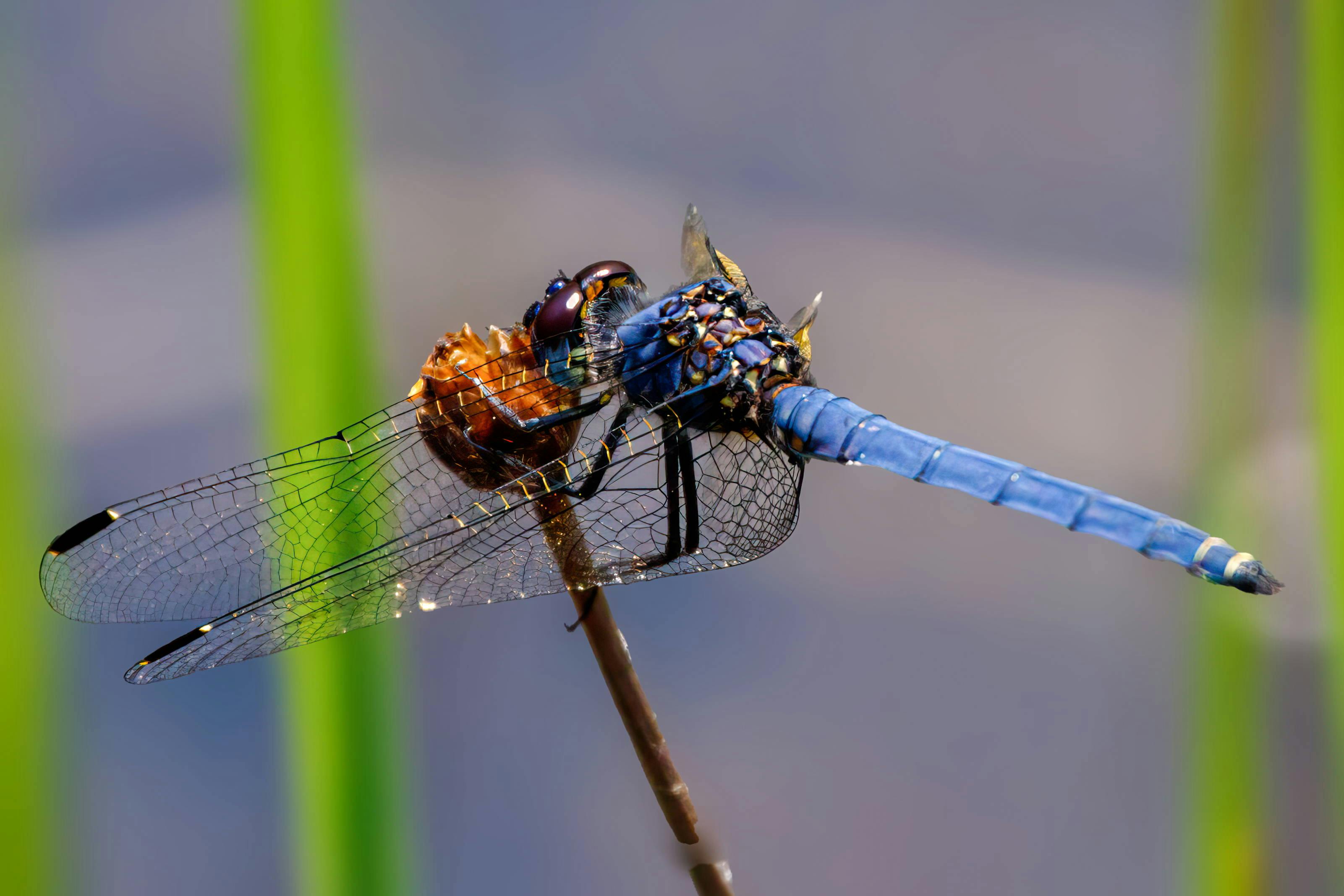
13. Choose the Right Time to Camp
Seasonal Considerations
Plan your camping trips during seasons when bugs are less active. Early spring and late fall are typically less buggy compared to the peak of summer. Check local insect activity reports and plan your trip accordingly.
Time of Day
Insects like mosquitoes are most active during dawn and dusk. Plan your activities and meals outside these peak times to reduce exposure to bugs. Stay inside your tent or screened shelter during these periods if necessary.
14. Light Management
Yellow Lights
Replace white lights with yellow or amber lights around your campsite. Insects are less attracted to these colors, reducing the number of bugs drawn to your site. Use yellow bug lights in lanterns and flashlights for added protection.
Light Placement
Position lights away from your tent and gathering areas to draw bugs away. Place lights at the periphery of your campsite to attract insects away from your sleeping and eating areas.
15. Use Ground Cloths and Tarps
Tent Footprint
Use a tent footprint or ground cloth to create a barrier between your tent and the ground. This helps keep insects from entering your tent from below. Ensure the ground cloth is properly sized and placed under your tent.
Tarp Shelter
Set up a tarp shelter over your tent and cooking area to provide additional protection. This can help keep rain and bugs away, creating a more comfortable camping experience.

16. Apply Insect-Repellent Treatments
Permethrin
Treat your clothing, gear, and tent with permethrin, an insect repellent that binds to fabric. This treatment can provide long-lasting protection against mosquitoes, ticks, and other insects. Follow the instructions on the product label for safe application.
Natural Treatments
Consider using natural treatments like cedar oil or neem oil to repel insects. These treatments can be applied to your gear and tent for added protection. Be sure to test a small area first to ensure there are no adverse reactions.
17. Create Physical Barriers
Bug Screens
Install bug screens on your tent, cooking area, and seating area to create physical barriers against insects. These screens allow airflow while keeping bugs out. Ensure that screens are properly installed and free of holes.
Netting
Use netting around your sleeping area for added protection. Hang netting from trees or use a portable frame to create a bug-free zone. Ensure that the netting is fine enough to keep out small insects like mosquitoes.
18. Use Electric Fans
Air Circulation
Electric fans can help keep bugs away by creating airflow that disrupts their flight patterns. Set up fans around your campsite to create a bug-repelling breeze. Battery-operated fans are a convenient option for camping.
Placement
Place fans near your tent entrance and seating area to maximize their effectiveness. The airflow can help keep bugs at bay and create a more comfortable environment.
19. Stay Hydrated and Nourished
Hydration
Staying hydrated can help reduce your attractiveness to bugs. Dehydration can increase your body temperature and make you more appealing to insects. Drink plenty of water throughout the day to stay cool and hydrated.
Balanced Diet
Maintain a balanced diet to support your overall health and well-being. Certain foods, like garlic and onions, are believed to repel insects due to their strong odor. Incorporate these foods into your meals for added protection.
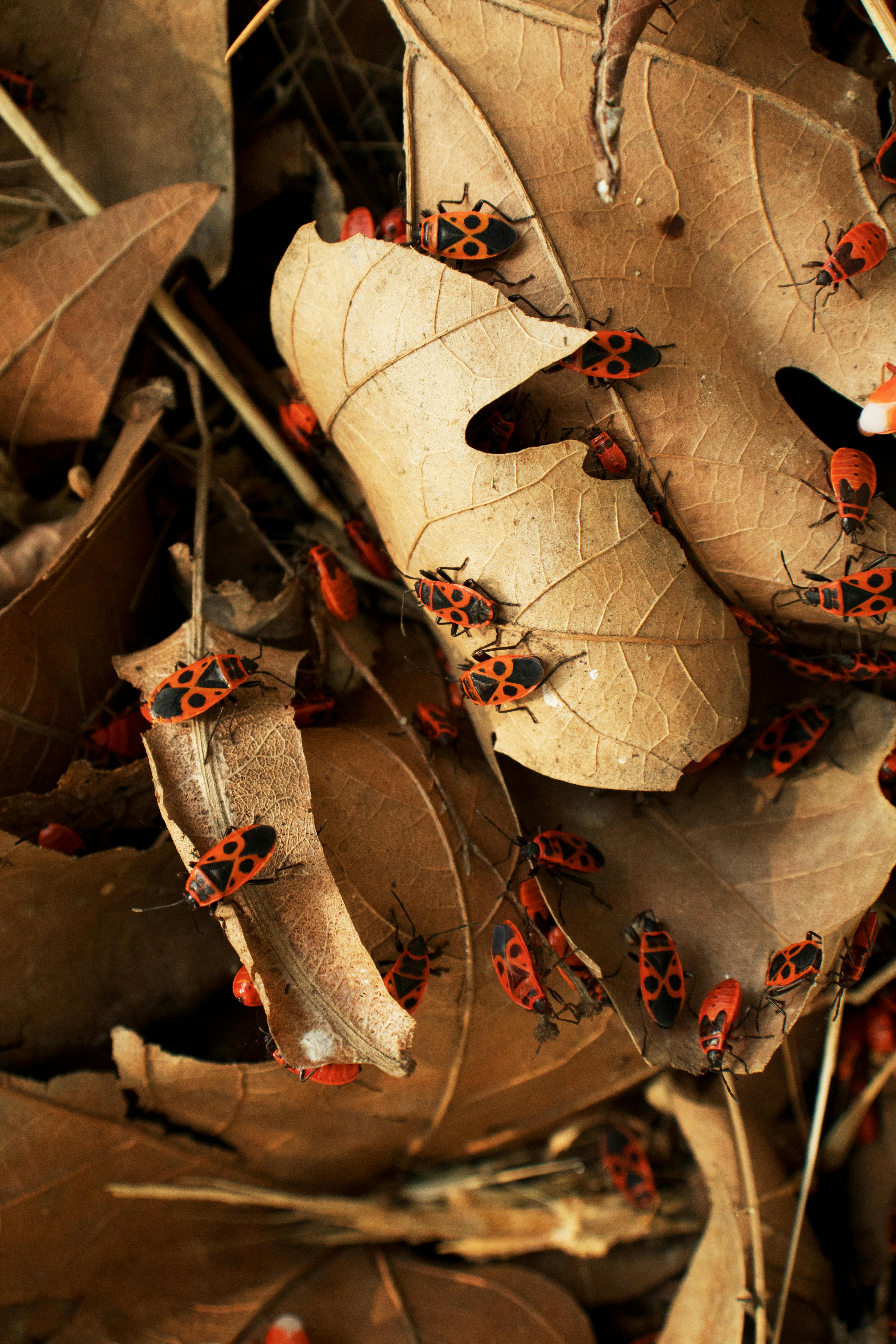
20. Educate Yourself and Stay Informed
Insect Awareness
Educate yourself about the insects common to your camping area and their habits. Understanding their behavior can help you take proactive measures to avoid them. Stay informed about local insect activity and any relevant advisories.
Continuous Learning
Continuously seek out new tips and tricks for keeping bugs away while camping. Join online forums, read camping blogs, and connect with other campers to share knowledge and experiences. Staying informed ensures that you’re always prepared for a bug-free camping trip.
Keeping bugs away while camping and out of your tent is essential for a comfortable and enjoyable experience. By choosing the right campsite, investing in quality gear, using natural and chemical repellents, and maintaining a clean campsite, you can minimize your exposure to insects. Incorporate these tips and tricks into your camping routine to ensure a bug-free adventure. Happy camping!
